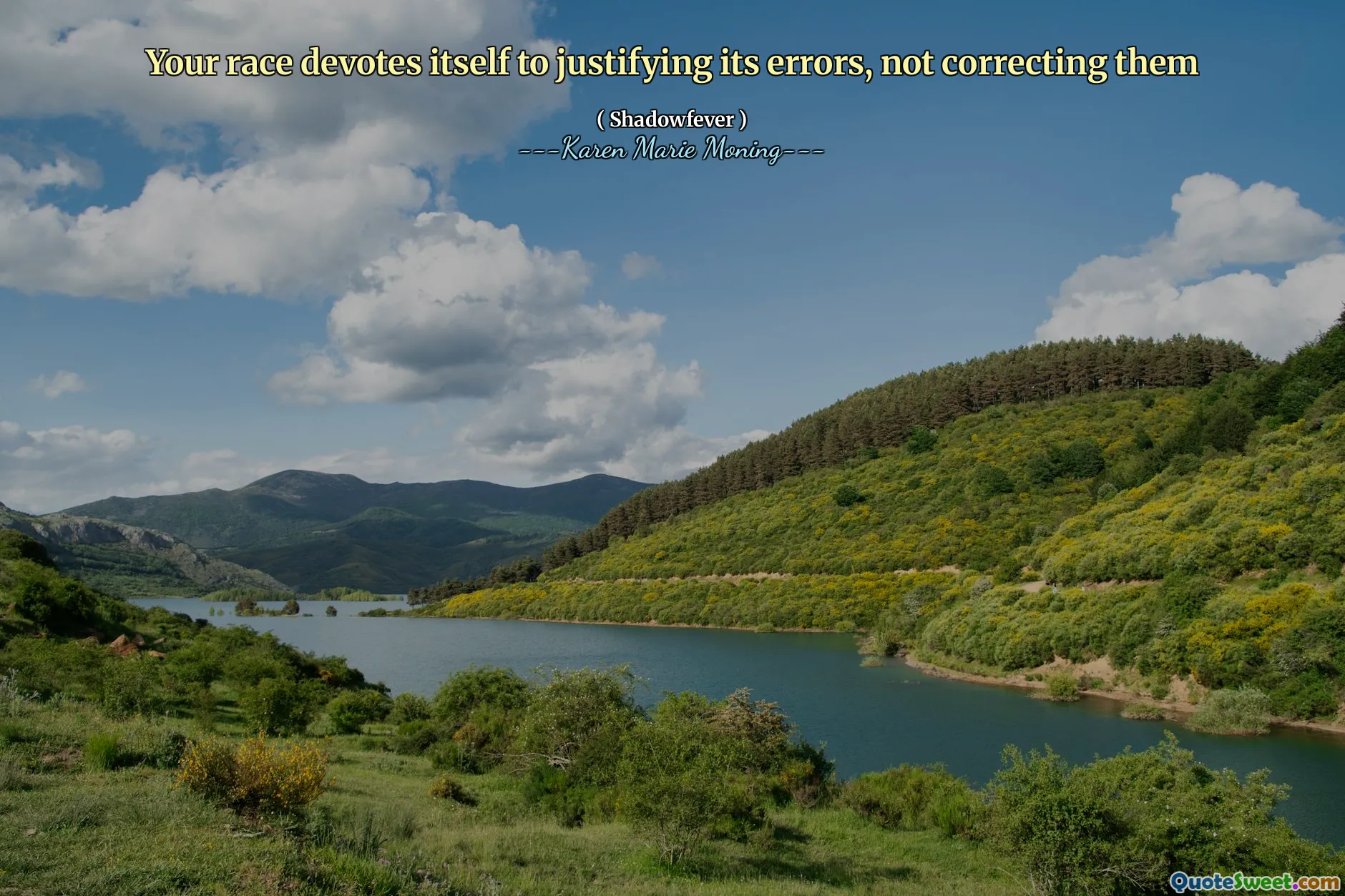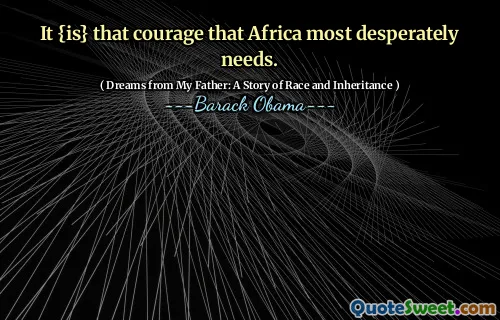
Your race devotes itself to justifying its errors, not correcting them
This quote highlights a psychologically complex aspect of human and societal behavior where individuals or groups often become entrenched in defending their mistakes rather than acknowledging and addressing them. Such resistance to correction can stem from various factors, including ego, fear of admitting fault, or pride. When people or communities prioritize justifying their errors over rectifying them, it creates a barrier to growth and progress. It’s a defensive mechanism that seeks to preserve self-image or societal reputation, even at the cost of stagnation or harm.
Reflecting on this, it’s evident that progress depends on the humility to admit mistakes and the courage to change. Often, societies or individuals prefer to rationalize their faults to preserve their identity or avoid discomfort. This behavior can lead to repeated errors, societal division, and a failure to evolve constructively. The reluctance to correct errors contrasts sharply with the wisdom of learning from failures—a dynamic that is essential for true growth.
In the context of the book '(Shadowfever)' by Karen Marie Moning, the theme of confronting truths and confronting one’s errors plays a crucial role in character development and plot progression. The quote invites us to consider whether we, as individuals or societies, are willing to confront our faults honestly. Embracing correction and correction rather than justification can be a difficult, yet ultimately liberating path toward genuine understanding and improvement. It prompts introspection about the ways we defend our mistakes and challenges us to adopt a mindset open to correction and learning.
Recognizing this tendency might be the first step toward fostering humility, empathy, and resilience, guiding us to accept imperfections as part of the human experience and opportunity for growth.






